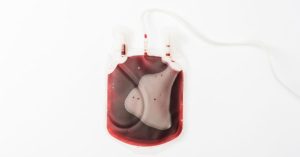
People often ask: How long does it take for disease transmission to occur after a tick bite? According to investigators, Lyme disease may be transmitted faster if the tick previously fed on another host.
In a 2014 article entitled “Lyme borreliosis: a review of data on transmission time after tick attachment,” Michael J Cook explored the topic. “It is frequently stated that the risk of infection is very low if the tick is removed within 24 to 48 hours with some claims that there is no risk if an attached tick is removed within 24 hours or 48 hours.”
However, in animal models, Cook found, “transmission can occur in less than 16 hours, and the minimum attachment time for transmission of infection has never been established.”
Have you been bitten by a partially fed tick?
Investigators suggest that transmission time may be shorter if a tick has already fed on a host. A study by Shih and colleagues, found that, “Partially fed nymphal ticks transmit spirochetal infection more rapidly than do ticks that have never been attached to a host.”¹
So, how quickly a tick can transmit Lyme disease may depend on whether the tick had been partly fed BEFORE it attached to its second host.
Shih et al. demonstrated that partially fed nymphal ticks (84%) were capable of transmitting spirochetes to a non-infected mouse within 24 hours. The authors discovered it took less time for an infected nymphal deer tick to transmit Lyme spirochetes to a mouse if the tick was partially fed.
Ticks spontaneously detach from hosts
Individuals may mistakenly believe that once a tick bites it will remain attached throughout the entire feeding or until it is removed. But this isn’t the case.
In the mouse study, Shih found that ticks can spontaneously detach during the feeding process. And this action can profoundly impact the time it takes for spirochetes to infect the host.
“Virtually all nymphal ticks that previously had fed for 16 hours reattached efficiently.”¹
“We found that nymphs do detach spontaneously from free-ranging mice in the laboratory, perhaps as frequently as 15% of the time,” the authors report.
“Indeed, about [one tenth] of questing nymphs in nature seem to be distended, and reattachment by partially fed sub-adult ticks commonly occurs.”
In the laboratory, partially fed ticks would reattach to a second host and commence feeding. “Virtually all nymphal ticks that previously had fed for 16 hours reattached efficiently.”
What happens in partially fed ticks?
The tick attaches to a host, feeds and the Lyme bacteria multiply rapidly in the tick’s mid-gut. Normally, the tick eliminates all of the bacteria, leaving behind only those spirochetes that survive in the mid-gut before they molt into an adult.
But, in a partially fed tick, spirochetes multiply in the mid-gut and then move to the salivary glands.
If the tick bites again, the spirochetes residing in the salivary glands can be transmitted more quickly. “Partially fed nymphs [ticks] are able to reattach to another host and Lyme disease spirochetes may be transmitted by partially fed nymphs more rapidly than by nymphs that have not already fed.”
Pet owners: be wary
Their findings are particularly relevant to people who own pets. “These partially fed ticks may already have acquired spirochetal infection and avidly seek other hosts,” writes Shih.
“Pet ownership appears to be a risk factor for human Lyme disease, and this may reflect contact with ticks that have detached from a cat or dog within the household.”
If an unfed tick attaches it can take up to 36 hours to transmit the Lyme spirochetes to a mouse, Shih claims. “The chain of events that culminates in migration of the spirochetes from the gut of the tick to its salivary apparatus begins within the first day of attachment and requires at least another day for completion.”
Note: The study by Shih and colleagues was conducted only with mice and has not been replicated with humans.
Related Articles:
References:
- Shih CM, Telford SR, 3rd, Pollack RJ, Spielman A. Rapid dissemination by the agent of Lyme disease in hosts that permit fulminating infection. Infect Immun, 61(6), 2396-2399 (1993).



Thank you for this important information, Dr. Cameron.
https://madisonarealymesupportgroup.com/2017/04/14/transmission-time-for-lymemsids-infection/
In this link is a helpful video by Microbiologist Holly Ahern who does a great job interpreting this information.
Interesting findings about partially fed ticks DR C. It makes sense. The tick that infected me was only attached for 7-8 hours tops. A red-raised ring developed in 24 hours and the classic flu-like symptoms hit 4 days later with the classic stiff neck symptom on the 5th morning. Did my GP believe the tick that bit me gave me those symptoms? -no. He said the tick was “not a deer tick and we do not have Lyme in our area of the mountains.” Months passed as the symptoms escalated into the next stages. My verbal concern for myself and Lyme ignored and he became hostile towards me. Month 3, He told me I was being paranoid and that I was extremely depressed and had Fibromyalgia; he prescribed Paxil and Valium. Did he finally believe me after I demanded a blood test for Borrelia that returned a positive via ELISA? He said, “how did you know?” Put me on 2 weeks doxy….the rest is history. 18 years later still sick. Not a unfamiliar story anymore is it Dr C. Thank you for all you do for us. Physicians reading this stop denying Lyme, your’e killing us.
Pretty much my story too. Except I was pronounced Bipolar and spent 20 years on an array of psych meds that kept changing after each of four hospitalizations for suicidal ideation. All that attributed to PTSD for trauma history. And “attention seeking behaviors.”
Tick, red ring, same progression of symptoms. When the crippling arthritis started after ten years, that was attributed to hard living as a cave explorer and a UPS driver in my youth.
Wake up doctors, CDC, psychiatric professionals. Follow up with your patients who have these symptoms.
Because burnt out doctors stop giving a s*** and you have to advocate for yourself and demand a blood test or second opinion. I’ve come to the conclusion that self-advocacy can save your life. Don’t depend on a doctor because sometimes they can’t even save their own!!
I went to my doctor three times in one week with all the typical symptoms of Lyme. They wanted to give me Zoloft and thought I was depressed!? Then I said, do you think it could be auto immune? At that point when a patient actually mentions an illness, they have to follow up and do the blood work! It came back positive for Lyme. They put me on antibiotics for 14 days and I feel better now but I am worried I will have a relapse. They say it’s a disease! Does it ever really go away? So I asked for an infectious disease, doctor, and I will be seeing one, but who knows how long that will take?
I am glad they agrees to test and treat for Lyme disease. I have Lyme disease patients in my practice who remain ill or relapse after 14 days treatment. I have colleagues who are reluctant to treat more than 14 days
When treatment is started early (1-2 weeks after a tick bite), is it soon enough to avoid later immunity issues?
(Are there timing factors for this in the progression of the disease?)
Can this affect the effectiveness of Covid vaccines, or the preferred timing?
My patients are more likely to stay well if treated early. I advise followup to assess for chronic illness. You would have to work with your doctor to determine the best time for a vaccine if you are ill.
Hello! Last night I felt a strange almost burning sensation on my waist and when I looked down there was a small rash but no tick. There was a hardness to the center and no Red ring. My Visiting friend took a photo and said she thought it looked like a spider bite. The hair follicles seemed raised and bumpy. This morning it had a very bright redness around it and small blisters forming inside. I went to my doctor who had a cancellation/free time to see me on short notice (miracle!) and she was visibly and verbally perplexed. To her 1.) it didn’t appear to be Lymes as I have no other symptoms at all and don’t recall a tick (I do tick checks every day.) “But it could be.” 2.) she was thinking – maybe a spider bite (which is what I thought it was.) 3.) then she said – possibly shingles – but then she changed her mind and said it didn’t look like shingles.
So she put me on two weeks of doxy in case it is Lymes which I took starting tonight. And she gave me a steroid cream for the blistery burning sore. It’s very strange. I have researched Lymes because my former husband had it years ago. I managed to avoid it for 22 years and so have my kids – by dressing properly, using tick sprays and not ever going into the high grass or wooded tick areas of our property. No bare feet either. Ever. But I do have a hound dog who sometimes gets into tall grasses for a moment or two. The suddenness of this coupled with zero other symptoms makes me think it’s a spider bite. Are there spider bites that look somewhat like tick bites? I was thinking maybe a brown recluse or woof spider bite… But meanwhile I’m being preventatively treated for Lymes just in case- with the doxy. Thoughts? I have photos. I feel very scared because I saw a neighbor with undiagnosed Lymes really spiral down. But I’m keeping my chin up for this immediate antibiotic prescription my doctor gave me. From the Catskills mountains
I have faced the diagnostic uncertainty in some of my patients. I also find it difficult to make diagnosis based on a picture. I have patients with rashes without symptoms. I have treated with antibiotics if Lyme disease is a consideration even if the diagnosis is uncertain. I also follow them to be sure there is no other diagnosis.
The question of how long a tick needs to be attached is a concerning one. The tick that bit me was postive for lyme, unengorged with blood probably attached around 7 hours per the lab report. I had a large local reaction. My Dr doesnt want to treat. Now I am nervous as I know several people with chronic lyme. Should we be insisting on treatment?
We recency have the same similar issue. I would also like to see what people say about your question. We were given a 1 dose of an antibiotic and told to go and and give the medicine with ice cream so we did, just to find out that taken that with calcium pretty much the body never goes the medicine in the first place. Taken with calcium 2 hours before or 2 hours before means the medicine most likely won’t work. The pharmacist was shocked the doctor told us that. Found out from infectious disease doctor the same thing do not take with any calcium. So now we are wondering since it wasn’t on more then 7 hours we believe do we redo the antibiotics or not. We dealt with Lyme before abs do not want to repeat. Good luck on getting treatment. Lyme is awful.
It’s sad that we are still fighting the treatment war. For 4 years in 2013 , I was couch to bed in a small studio apartment due to Lyme and coinfections . I had the financial help to treat with both IV and herbal meds. In 2017, my symptoms improved but it was still a struggle. I got a staph infection from a shard of glass in a finger, became septic, paraplegic from an abscess and nearly lost my life. BUT I haven’t had another Lyme symptom since! Go figure. I’d almost go through the sepsis again not to have Lyme
I’m 13 years old and recently went camping. After camping I got many symptoms of a cold. Two days later I found a tick in my skin but removed it quickly. It looked like a black legged tick. I’m paranoid that I have Lyme disease but have no symptoms other than a cold. Should I get checked for Lyme disease.
I have had a patients whose Lyme disease initially presented with viral Lyme symptoms that initially resolve. They later develop chronic issues. I am also concerned the the risk of an infection is higher if the tick is attached for 2 days. I have encouraged my patients with a similar story to be checked out.
Can you specify what you mean with viral Lyme symptoms? Stuffy nose and cough are not indicating lymes, correct? But fever is? Would appreciate more info on that and how soon the symptoms can appear.
I was treated for Lyme with antibiotics a month ago and just now pulled a nymph out of my ankle. Do I need another dose of antibiotics? It hadn’t been there very long – maybe an hour.
I really appreciate this post and the detailed information. I learned that if a tick is manipulated it can “spill” the bacteria sooner, you did not mention this at all. Recently removed a tick that was in very firmly and ripped while trying to remove it. Removed second half in a second step. Adult black legged. There didn’t seem to be any clear engorgement nor obvious blood spilled but could have missed it if it was a tiny amount. Wondering if this unsuccessful process of removing it aka “manipulation” could have caused early transmission? So far no Symptome other than stuffy nose and cough starting the morning after removing it at night. Sent the tick in to ticknology.com inCO for testing, we’re in high lymes are in Wisconsin. Also wondering at what stage in attaching a tick bite starts to itch. This one didn’t. Mouth piece is still in. Also was it a mistake to not wash hands and the area immediately after removing?
I have seen patients without and without an itch. It is likely related to salivary secretions. I am not sure the presence of an itch tells anything. I remove the head but I not sure it makes a difference. I advise washing hands after removal but I am not sure it helps.
We found a tick on my daughter’s leg and removed it with a tweezers but didn’t save it. I suspect it was present less than 6 hours, as she had been in taller grass picking up trash that same day (late April). Six days later, she developed a low grade fever, body aches and headache. The provider we saw didn’t think a tickborne illness that could transmit illness that quickly was likely to happen in MN. They feel like her symptoms are just related to a viral illness.
Should we get a second opinion? Do you feel like antibiotics are warranted in this case?
Thanks.
I am concerned when my patients area ill within 4 to 6 weeks of a know tick bite. I have patients who contract a tick borne illness in less than 24 hours. I have had to make a case by case decision.
Lyme disease and it’s plethora of debilitating symptoms is a man made bio weapon meant to take down humanity. TREAT IT AS SUCH! – Immediately and ferociously. It stuns me that these days, with what we all know is going on, that immediate treatment is even in question. We all must band together to secure Liberty when it comes to our health. How long a tick takes to infect should NOT even be a question deciding if and when to treat a tick bite victim. If someone can, in addition, find a cure for the rampant cognitive dissonance infecting the masses, put it out there.
My 17 year old son was diagnosed with potential lyme disease 3 weeks after a tick bite. He has Bell’s palsy secondary to Lyme which is what lead to the diagnosis. He also had a rash, but we didn’t put the two together until the Bell’s palsy started. He is now on 100 mg of Doxy twice daily for two weeks. They also gave him prednisone for the Bell’s palsy which I had him discontinue a few days later after learning that prednisone could prevent the eradication to Lyme. I’m concerned that without treating the Bell’s palsy with steroids he could have long term facial paralysis, but I obviously don’t want the Lyme to spread more throughout his body. Any information on this would be greatly appreciated.
My husband came down with a very severe debilitating headache with shooting pains on and off beside his ear which lasted 4 days. He thought he had a pinched nerve in his neck which was creating the headache. His couldn’t see his chiropractor for a few days. He had a treatment and initially felt somewhat better and the following day he broke out in a rash on his upper arm and torso. No bullseye. He then remembered removing a tick from behind his ear, the same area where the shooting pain occurred, the previous week prior to the start of the headache. The tick was NOT attached and it was crawling and he removed it but didn’t think to save it.
His doctor saw him the following day, began treatment of Doxy, 2xper day for 21 days. The test did come back positive for Lymes disease. I always thought the tick had to be imbedded but in my husband’s case, it must have just bit him and kept crawling.
Is this the most current treatment out there and is this the recommended treatment? We’re not sure if we should be doing something else.
My very worst case of Lyme happened after a dine and dash little one got me. Literally walked about 2 yards off a deck, into dirt/gravel drive where the car was parked. Couple little clumps of weeds I keep mowed down. Went back inside, took a shower with a loofah. By midday, I was feeling even worse than usual. Full disclosure, I have had over 40 latchons in my life, been dealing with it since way back when Lyme, et al, was lumped under Woodsman’s Disease or nothing, possible infection in vitro. But can trace back Sept 1976, three months before I turned 9.
By that night, I had a red patch. I had used the heating pad all day, and honestly thought I had a burn. It grew over the next couple weeks, could not see any indication of a bite of any sort. I ended up basically bed ridden, could not hold a fork to eat, and all my normal symptoms were exponentially worse.
Ended up at doc for regular appointment, showed the nurse, she said, “Lyme”. Ended up immediately on a PICCline with Ceftriaxone, because I had already been taking Doxy prior to the bite. It wasn’t until almost a week into the picc when the tiniest blister like spot appeared, barely visible, showing where it had hit me. PICC was 28 days, they would not give me a bigger dose or longer, but, oh man, did I feel better than I had for years and years. My BP and blood sugars started stabilizing on their own. Within two days of it being pulled, I went backwards. Couple months later I had a double bypass, which half failed, to where now, I have zero life. Good thing I have a smart aleck attitude, and can laugh at everything.
Sorry for all the typos and bad grammar, I cannot proof things and with brain fog and aphasia, I am lucky to even get something in writing.
I was bit by a tick 7 days ago that I sent in to Ticktest and it tested negative for everything. I have developed some symptoms of achey joints, nothing severe but I do feel concerned. Should I take antibiotics even though the tick tested negative? 7-10 days? 20 days? Is it too late since the bite was 7 days ago? Thank you Dr Cameron.
I have patients who developed tick borne infections despite a negative test from the tick. One study said that blood may interfere with the testing. The bacteria may not survive in transit. I am not a fan of a single dose of doxycycline as advised by the CDC. The single dose would have had to be given in 72 hours. I am not a fan of sitting any symptoms that occur within 6 weeks of a known tick bite. I typically treat as if there were an EM rash with followup. The duration would be determined by your doctor along with followup.